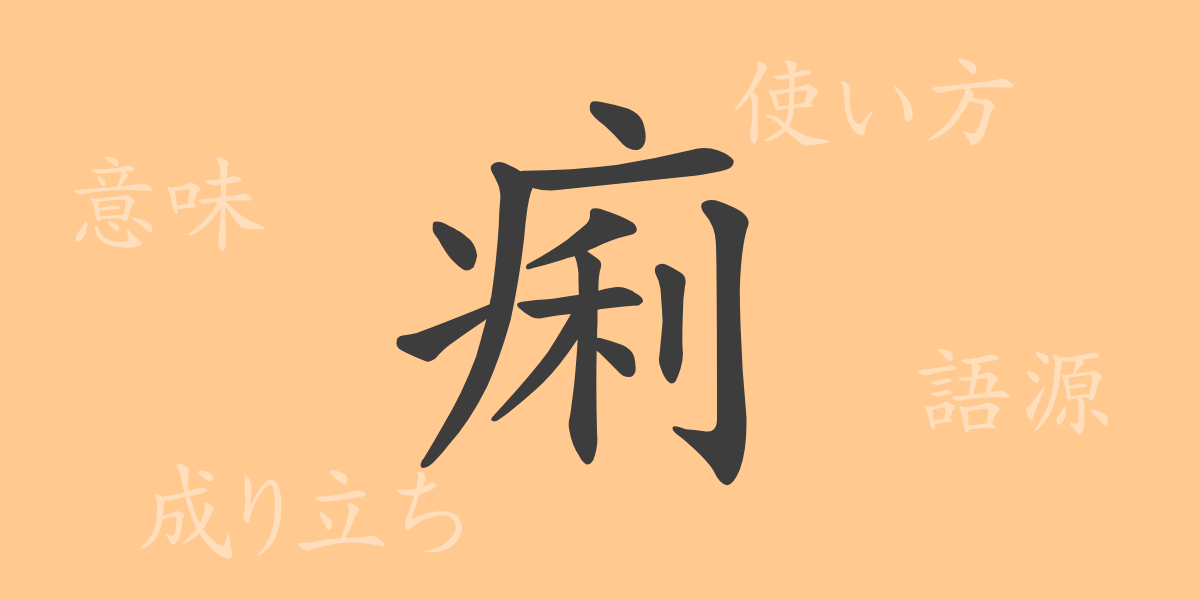Japan’s rich culture is deeply embedded with numerous kanji characters. Each kanji has its own unique history and meaning, enriching the Japanese language. This time, let’s focus on the kanji “痢(ri)”, which is rarely used in daily life but holds significant importance in the medical world. From its etymology to its modern usage, and even the idioms and proverbs that include it, we will unravel the full scope of this kanji.
Origin and Etymology of 痢(ri)
The kanji “痢(ri)” is composed of the radical “疒(byō)” which signifies illness, and the phonetic component “利(ri)”. It is believed to have been used in ancient China to depict people suffering from abdominal pain or diarrhea. This kanji is often used to indicate physical ailments, particularly those related to the digestive system.
Meaning and Usage of 痢(ri)
The kanji “痢(ri)” is primarily used in medical terminology to refer to intestinal inflammation or infections that involve diarrhea. It is used to describe conditions caused by specific pathogens, such as dysentery or amoebic dysentery. While it is not commonly seen in everyday conversation, it is a standard term among healthcare professionals.
Reading, Stroke Count, and Radical of 痢(ri)
Understanding the reading and components of the kanji “痢(ri)” is crucial for deepening one’s knowledge of Japanese kanji culture.
- Reading: The on’yomi (音読み) is “リ(ri)”, and there is no kun’yomi (訓読み).
- Stroke Count: It has a total of 15 strokes.
- Radical: The radical is “疒(byō)”, which is commonly found in kanji related to illnesses.
Idioms, Phrases, and Proverbs Using 痢(ri) and Their Meanings
Most idioms and phrases that include “痢(ri)” pertain to medical conditions. For instance, “赤痢(sekiri)” refers to dysentery caused by Shigella bacteria, and “アメーバ痢(ameebari)” indicates amoebic dysentery caused by amoebas. These terms are used to specify the type and cause of the illness.
Summary of 痢(ri)
The kanji “痢(ri)” plays a crucial role in the field of medicine. Understanding its etymology, meaning, and usage not only deepens one’s knowledge of the Japanese language but also enhances awareness of health-related issues. Learning idioms and phrases that include “痢(ri)” will advance your comprehension of specialized medical terminology. Knowing “痢(ri)” as a common kanji in Japanese allows one to connect with the cultural and historical context behind the words.

























